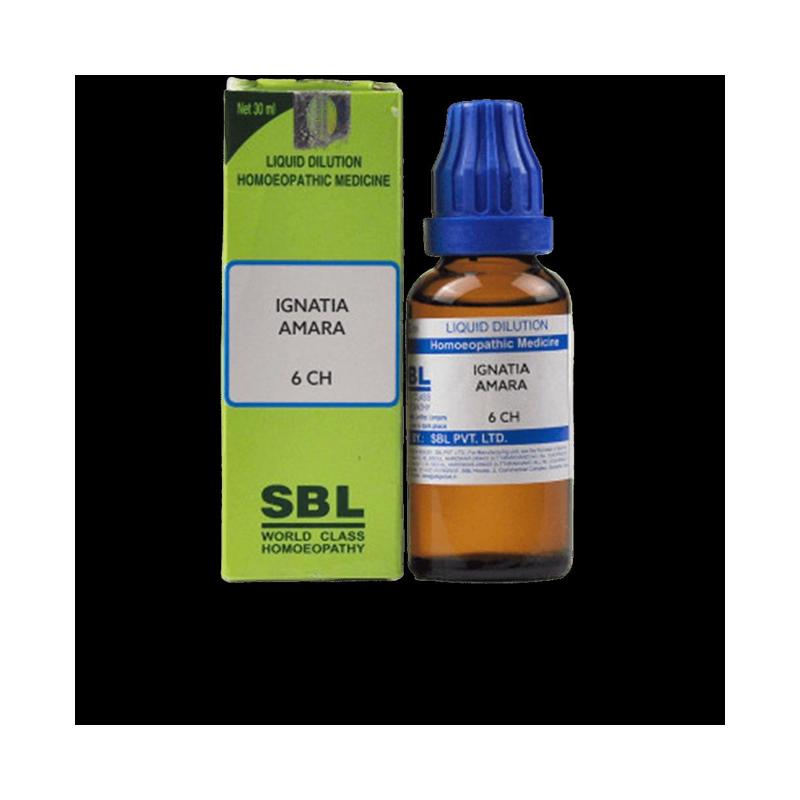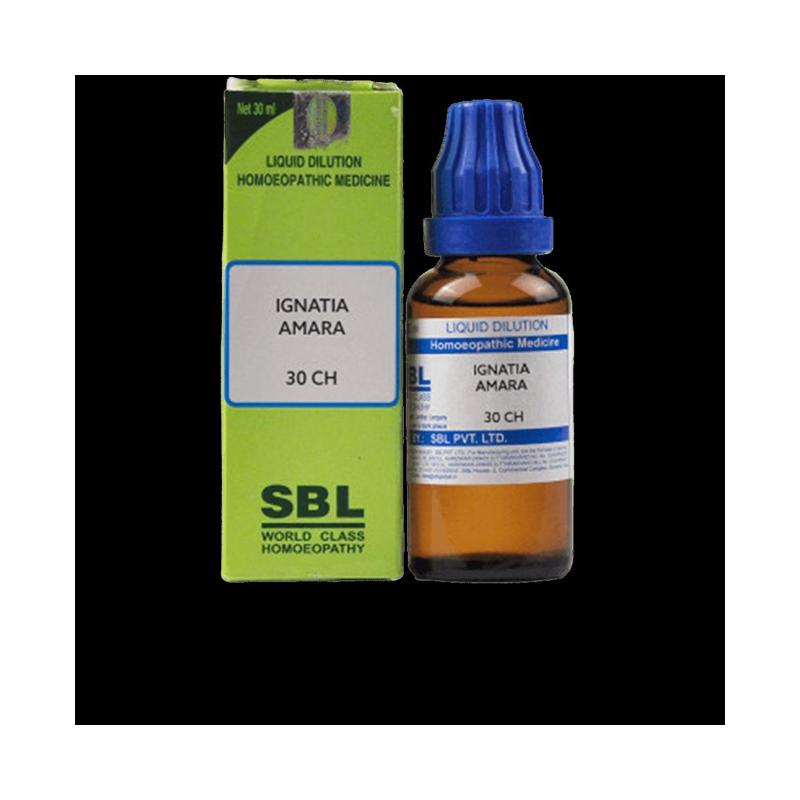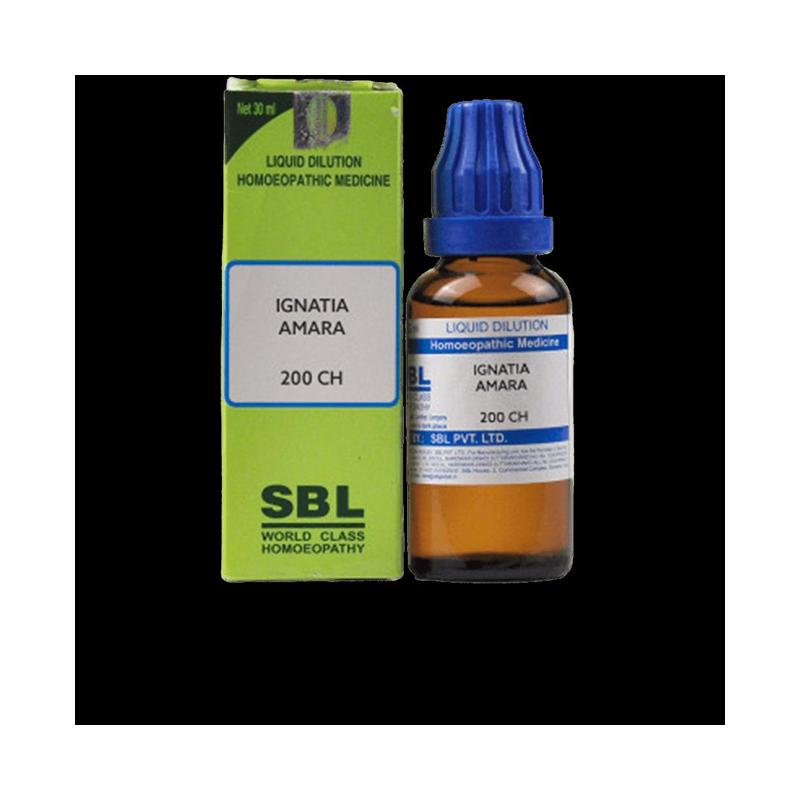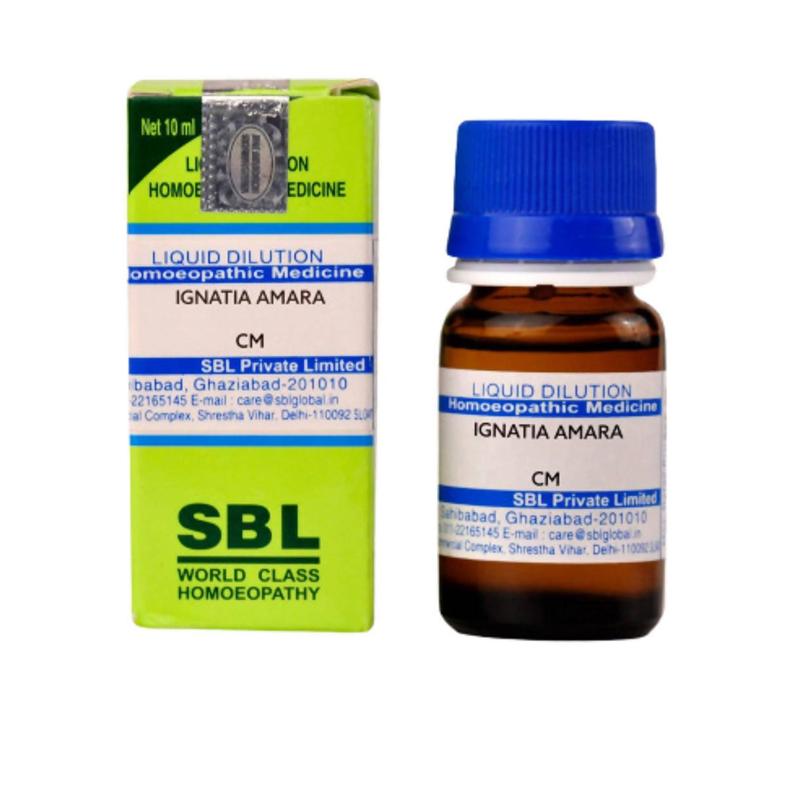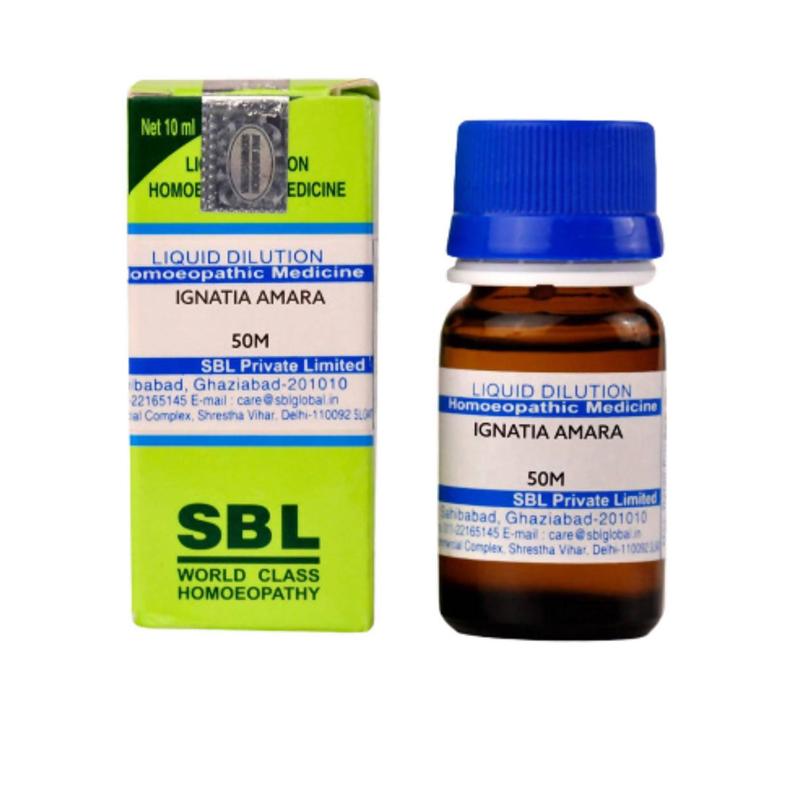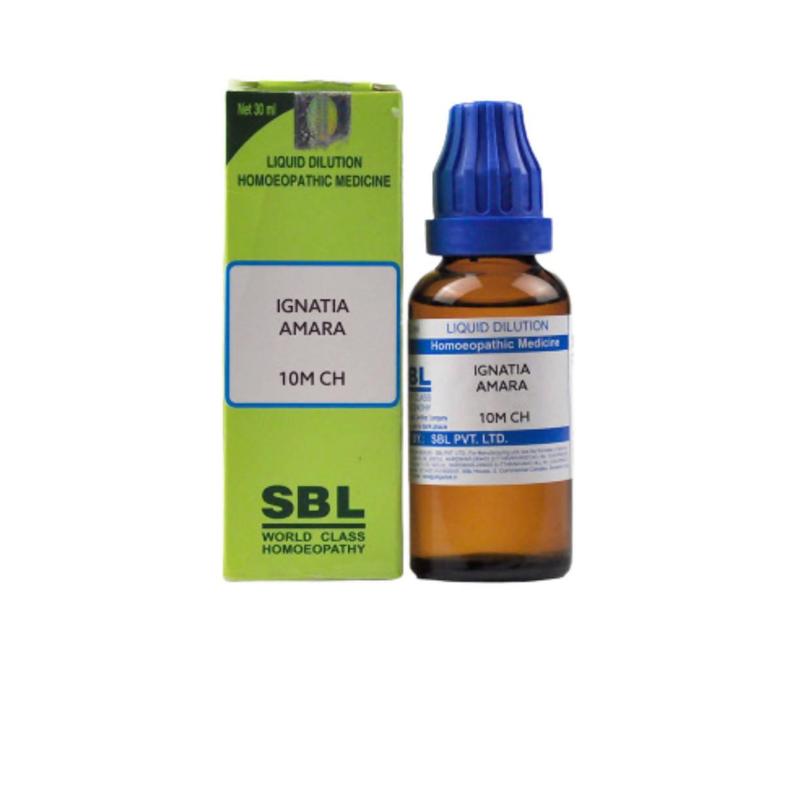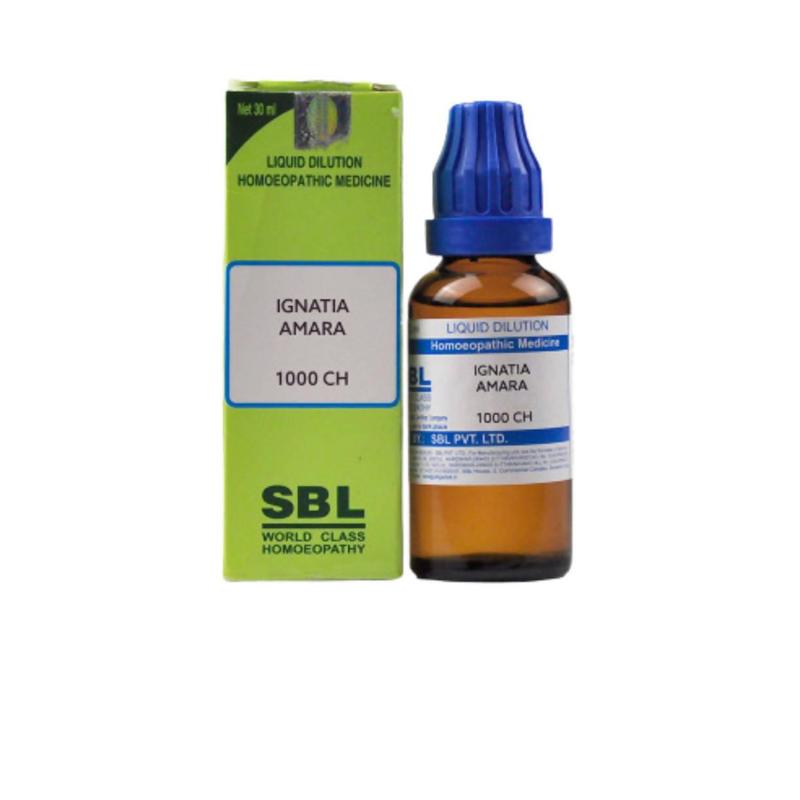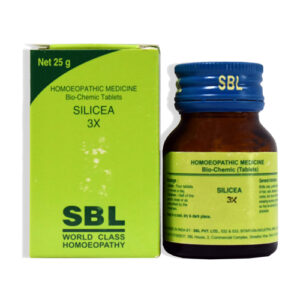Indication / Benefits
Ignatia Amara, commonly known as St. Ignatius Bean, is a homoeopathic medicine derived from the seeds of the Ignatia amara plant. Belonging to the Loganiaceae family, it has been traditionally valued for its therapeutic properties in treating emotional and psychological conditions. In homoeopathy, Ignatia Amara is primarily used to address symptoms such as grief, sadness, hysteria, and mood swings. It is also employed for its effects on headaches, insomnia, and digestive disorders triggered by emotional stress.
Common Names:
Hindi: Ignatia Amara
English: St. Ignatius Bean
?
SBL’s Ignatia Amara can be helpful in the following conditions:
- Hysteria
- Ignatia is particularly useful for individuals with heightened sensitivity and emotional disturbances. It addresses symptoms such as clonic spasms, hyperesthesia of the senses, and a tendency toward rapid and extreme mood changes.
- Grief and Emotional Trauma
- This remedy is effective for those suffering from the effects of grief, worry, and disappointment. Symptoms may include silently brooding, melancholic mood, sighing, sobbing, and an inability to communicate feelings.
- Headaches
- Ignatia is indicated for headaches that feel like a nail driven into the side of the head, cramp-like pains over the root of the nose, and congestive headaches following anger or grief.
- Asthenopia (Eye Strain)
- Symptoms include spasms of the eyelids and neuralgic pain around the eyes, often accompanied by flickering zigzags.
- Facial Twitching
- The remedy helps with involuntary twitching of facial muscles and lips, as well as changes in facial color when at rest.
- Oral Conditions
- Conditions such as a sour taste in the mouth, a tendency to bite the inside of the cheeks, constant saliva, and toothache aggravated by coffee and smoking are addressed by Ignatia.
- Throat Problems
- It is beneficial for a feeling of a lump in the throat (globus hystericus), sore throat with stitches, and inflamed, swollen tonsils with small ulcers.
- Digestive Issues
- Ignatia can relieve sour eructation, an all-gone feeling in the stomach, flatulence, hiccough, and stomach cramps worsened by slight contact. It also helps those who crave acidic foods and experience sinking sensations in the stomach.
- Abdominal Pains
- Symptoms include rumbling in the bowels, a weak feeling in the upper abdomen, and colicky, griping pains in the sides of the abdomen.
- Rectal Disorders
- Ignatia is useful for itching and stitching sensations up the rectum, prolapse, painful constriction of the anus after stool, and hemorrhoids with pain and bleeding.
- Urinary Issues
- It is indicated for profuse, watery urine.
- Respiratory Conditions
- Dry, spasmodic coughs in quick shocks, reflex coughs, and hollow, spasmodic coughs that worsen in the evening are symptoms treated by Ignatia.
- Menstrual and Female Reproductive Issues
- The remedy is suitable for menstrual irregularities such as early, profuse, or scanty black menses, feminine sexual frigidity, and menstrual suppression due to grief.
- Musculoskeletal Pains
- Symptoms include jerking of limbs, pain in the Achilles tendon and calf, and ulcerative pain in the soles.
- Sleep Disturbances
- Ignatia can help with very light sleep, jerking limbs upon falling asleep, insomnia due to grief and worries, and prolonged, troubling dreams.
- Fever and Skin Conditions
- The remedy is indicated for chills with thirst that are not relieved by external heat, itching, nettle-rash, and excoriation around sensitive areas like the vagina and mouth.
